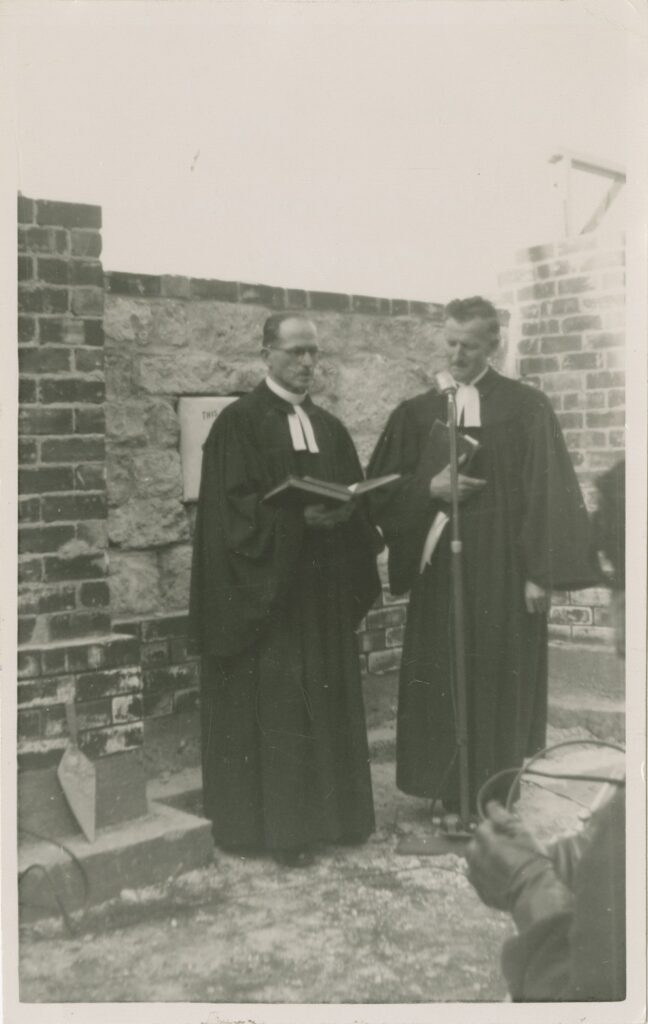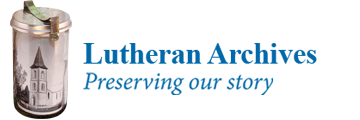Depositing Individual Records and Artefacts
There are many records that you might hold in your home, which may be best cared for at the Lutheran Archives, and where others have the chance to access and view them. These may be published works such as books and family histories, records created by someone in your family in their church-related role, or artefacts handed down from generation to generation.
While we can’t care for all Lutheran family’s artefacts and records, we may take a sample of these to tell the story of Lutheran emigration, culture, worship and daily life, and more. Please get in contact with us before you come in to talk about whether the records you hold might fit within our collection scope.
If you have records that were created by church administration or a congregation, it is important that these come to the archive for preservation and custodianship. These records are significant for both communities and researchers. Please contact us if you have administrative or congregational records at your home.

Records produced by the Church
You or someone in your family may have served the church at some point in their life, in roles such as congregation secretary or treasurer, office administrator, LCANZ layworker, or other roles. If you still hold records created for these roles, these are LCANZ property and need to be held at and preserved by Lutheran Archives. This is important for several reasons, including capturing the whole LCANZ story, accountability reasons, and the discoverability and accessibility of the records for the community.
If you have any of these records, or think you might be in possession of them, please get in contact with us to talk about their deposit.
Family bibles and artefacts
Lutheran families who emigrated from Germany in the 19th Century often brought with them many belongings, including their family bibles and worship books. Other items tell their stories of Lutheran church and cultural life, such as needlework, baptism cards, clothing, and much more.
While these items are all highly significant, Lutheran Archives is only able to care for some books and artefacts. We look to tell the story of the Lutheran Church through examples of daily items used by Lutherans. To be deposited at Lutheran Archives, family bibles and artefacts need to be unique, have strong provenance (stories and evidence of ownership) and be in good condition.
photographs
You may have in your possession photographs or slides of congregation events, significant Lutheran families and figures, or church buildings. We would love to look after and preserve these so that others can enjoy them into the future.
We can only take photographic images if they are captioned and dated, with any people in the photos identified. Please make sure this information is documented before depositing your photos or slide at Lutheran Archives.
AV MATERIAL
Lutheran Archives has a large collection of audiovisual material, including audio recordings on reels and cassettes, 8mm, 16mm and 35mm film, videos, digital recordings, wax and shellac records, and many more. We aim to digitise these formats as soon as we can, under the NAA’s Deadline 2025 guidelines.
You might have recordings of national or district church events, significant sermons or talks, or congregation events. If you think these belong at Lutheran Archives, please speak to us about depositing them.
Published works
Lutheran Archives collects many types of published works, including reference and family history books, theological books, hymn books, sermon books, worship resource books, and many more. Some of these may be published by the Lutheran Church in Australia, or they may be published overseas and brought to Australia and New Zealand for use by Lutherans.
